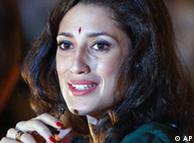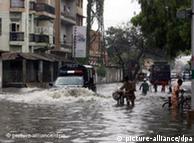Whether it was her very vocal opposition to her aunt Benazir or her writing or her opposition to dynastic politics, Fatima always makes to the headlines. And the latest is that filmmaker Ahsan Hyder wants to cast her in his Breaking Free and, as the media has reported, has even got in touch with her agent? Fatima laughs it off as she says, “That story is the funniest thing I’ve heard in a long time. I’ve never heard of Ahsan Hyder nor do I have a secretary in Dubai, who apparently ‘reads’ me the scripts. In fact, I’ve never been offered any role in any movie. The last time I acted was in Class XI in an adaptation of The Odd Couple.”
‘I’m writing on the Bhutto family’:
I have been writing, travelling and speaking about Pakistan. I was in China and then in Cuba, where I had gone to write about living in the aftermath of the revolution and it was amazing. I am writing a book on the family at the moment. It’s been hyped as a lot of things; I don’t want to ruin the surprise by saying more.
‘Indian food is my weakness’:
I might not be doing a Bollywood film but I am very fond of India. I came there last for the Jaipur Literary Festival. I believe we’re sister countries. Like siblings, our similarities connect us far more than our differences tear us apart. I like the people, they have always been so kind to me, es pecially when they find out I’m from Pakistan. And I love the food… especially the thali. I’m a vegetarian so I really like South Indian food – dosas and idlis. There’s a place in Karachi that does South Indian food and chaat really well and I’m there embarrassingly often.
‘I and Benazir were never on the same side of any issue’:
My aunt is gone and I don’t want to drudge up the past. But people haven’t stopped comparing me with her. People see the fact that we’re both women, we both lost our fathers in violent ways, we were both educated abroad and immediately assume that we must be the same person. But those are completely cosmetic similarities. Benazir grew up in power, she grew up as
the daughter of a prime minister. I grew up in exile. She attended very pro-establishment, almost right wing universities, whereas I went to Columbia and SOAS, two of the most radically leftist and progressive schools around. As for our personal or political differences, there are far too many to count. Let’s just say, I’m not sure we stood on the same side of any issue.
‘I don’t believe in dynastic politics’:
I’ve never believed in dynastic politics, which has been as deadly for my country as dictatorships have been. I am political, very much so, but there’s so many ways to be involved politically and from what we’ve seen in Pakistan, government isn’t necessarily the most positive avenue. I work on several grassroots issues and I write about the corruption of the governments and the violence and poverty that has mired Pakistan’s people in this abject state.
‘I don’t know Bilawal well’:
I don’t know Bilawal well. Before his mother’s death, I last saw him when he was eight years old. He’s a young man and he’s been through a devastating loss. He is a student and I think he deserves some privacy.



















